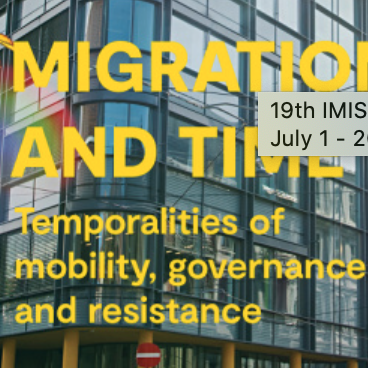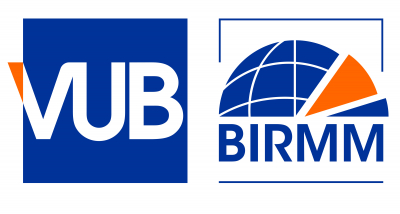
FOR THE PANEL "RETHINKING DISPLACEMENT THROUGH URBAN AND MIGRATION THEORY" AT THE 19TH IMISCOE ANNUAL CONFERENCE, JUNE 29 - JULY 1, 2022, OSLO (HYBRID)
Panel Organizers: René Kreichauf & Hala El Moussawi
Even though displacement strongly relates to urbanization processes, which are frequently the starting point for dispossession and global forced migrations (Van Vliet et al., 2017), both urban studies and (forced) migration research usually work with separately developed frameworks, scales, and forms of displacement. However, the case of recent refugee arrivals reveals the intertwined relation between international and urban forms of displacement: Refugees’ experiences of coercion, dispossession, and un-homing (Elliott-Cooper et al., 2020) are not limited to experiences made in countries of origin or during the migration journey, but they often continue and are multiplied upon (and long after) arrival because of urban bordering practices (Hamann & El- Kayed, 2018) and wider patterns socio-spatial exclusion in cities, including racialized housing markets, the lack of affordable housing, marginalization and urban poverty (Bhagat, 2020). Therefore, refugees “have to traverse urban spaces marked by growing levels of internal displacement (evictions and homelessness)” (Soederberg, 2018, 924). Cities, then, are “sites that receive displaced populations, as well as engender displacement through urban development, on scales of intensity that are comparable to international displacements” (Huq & Miraftab, 2020, 353).
In this panel, we want to discuss how, to what extent, and under which conditions (and possible limitations) we can equate and analytically compare and combine different forms and practices of international and urban displacement. The broader purpose of this panel is to think about ways to analyze and theorize the relationships between displacement, the internationally displaced, and urban processes, as well as possible new forms and mechanisms of displacement. Therefore, we are looking for contributions that combine the rich theoretical ideas of displacement as a process that “ruptures the connection between people and place” from both urban studies and migration research perspectives (Elliott-Cooper et al., 2020, 492), bringing together research on the transnational forced movement of people and research about displacement because of urban development processes.
Contributions may provide theoretical ideas and/or fresh empirical material on topics such as:
- Different forms, scales, and practices of displacement and their reflection in urban contexts
- (Urban) mechanisms, racial urban policies and structures that spawn the continued displacement of forced migrants
- The governing of displaced population through urban development processes, policies, and projects
- Conceptualizations of cities as sites of both, receiving the displaced and causing displacement
- The connections (or disconnections and differences) between the lived experiences of displacement of the marginalized and “urban poor”, and refugees and forced migrants
- The characteristics of refugee spaces as new sites of, and their intertwinedness with, urban marginalization
- The multiplication of displacement experiences, or “multiplied displacement”, and the way they unfold and are contested in urban contexts
- The link between refugees’ experiences of (international) displacement and developed “strategies of survival” in relation to their ways in dealing with urban/local displacement pressures and processes
- Refugees’ tactics and practices for navigating racialized housing markets and recurring displacements in the city of arrival
Interested participants are invited to send abstracts of no more than 250 words with keywords to rene.kreichauf@vub.be and hala.el.moussawi@vub.be no later than the 14th of December 2021.
Work cited:
Bhagat, A. (2020). Governing refugees in raced markets: Displacement and disposability from Europe’s frontier to the streets of Paris. Review of International Political Economy, 1–24. https://doi.org/10.1080/09692290.2020.1844781 Elliott-Cooper, A.,
Hubbard, P., & Lees, L. (2020). Moving beyond Marcuse: Gentrification, displacement and the violence of un-homing. Progress in Human Geography, 44(3), 492–509. https://doi.org/10.1177/0309132519830511
Hamann, U., & El-Kayed, N. (2018). Refugees’ access to housing and residency in German cities: Internal border regimes and their local variations. Social Inclusion, 6(1), 135–146. https://doi.org/10.17645/si.v6i1.1334
Huq, E., & Miraftab, F. (2020). “We are all refugees”: Camps and informal settlements as converging spaces of global displacements. Planning Theory & Practice, 21(3), 351–370. https://doi.org/10.1080/14649357.2020.1776376
Soederberg, S. (2018). Governing global displacement in austerity urbanism: The case of Berlin’s refugee housing crisis. Development and Change, 50(4), 923–947. https://doi.org/10.1111/dech. 12455
Van Vliet, J., Eitelberg, D. A., & Verburg, P. H. (2017). A global analysis of land take in cropland areas and production displacement from urbanization. Global Environmental Change, 43, 107–115. https://doi.org/10.1016/j.gloenvcha.2017.02.001
